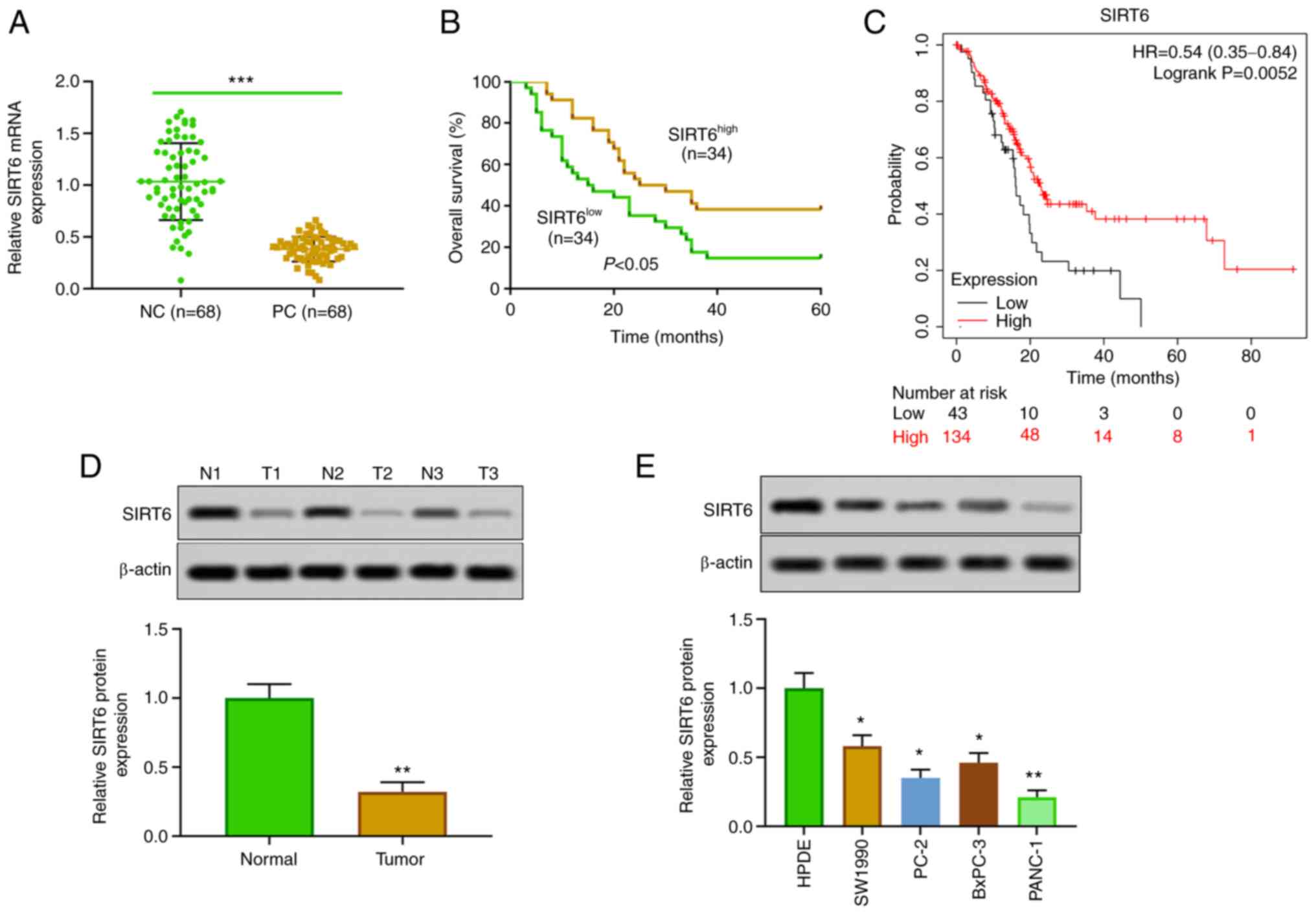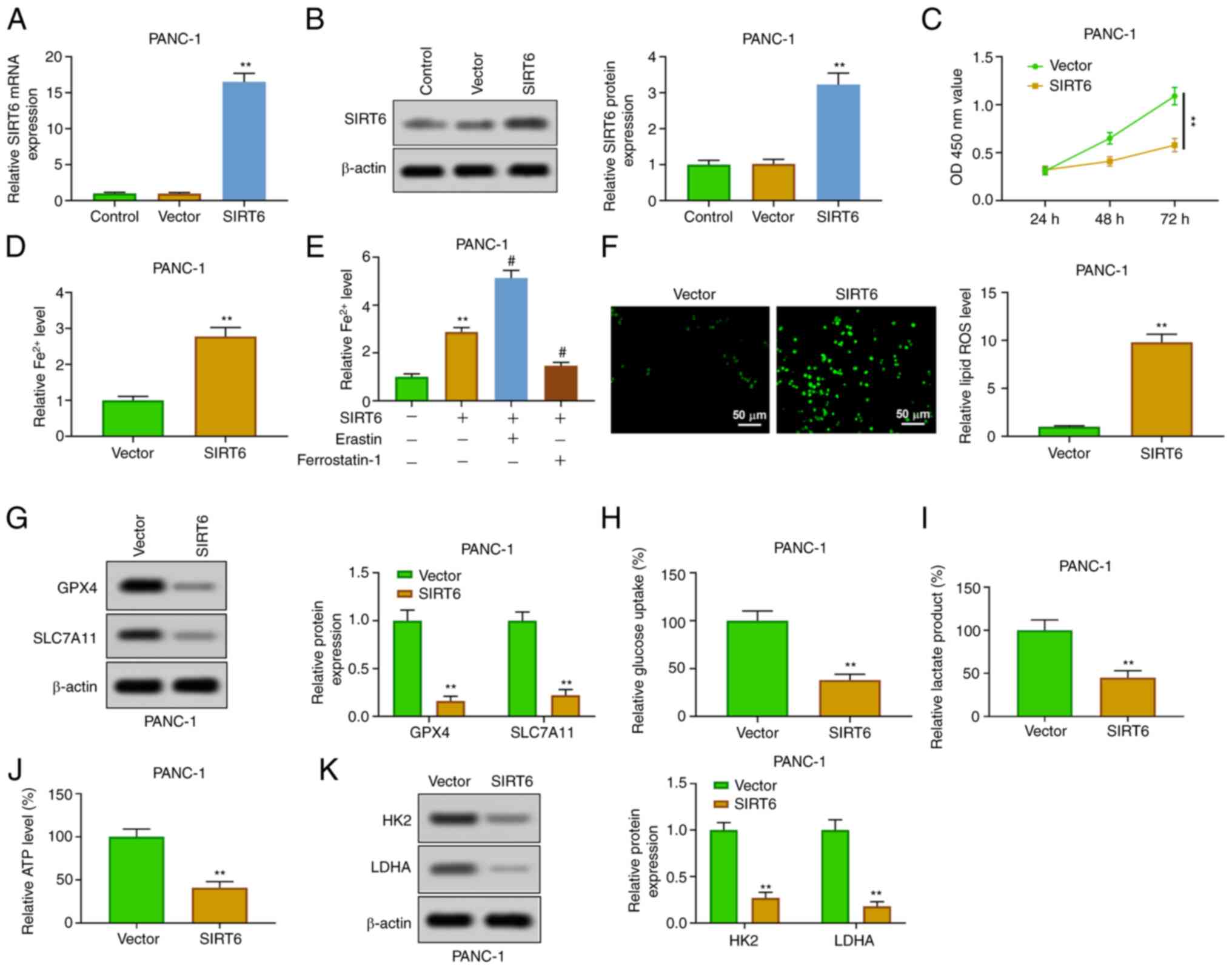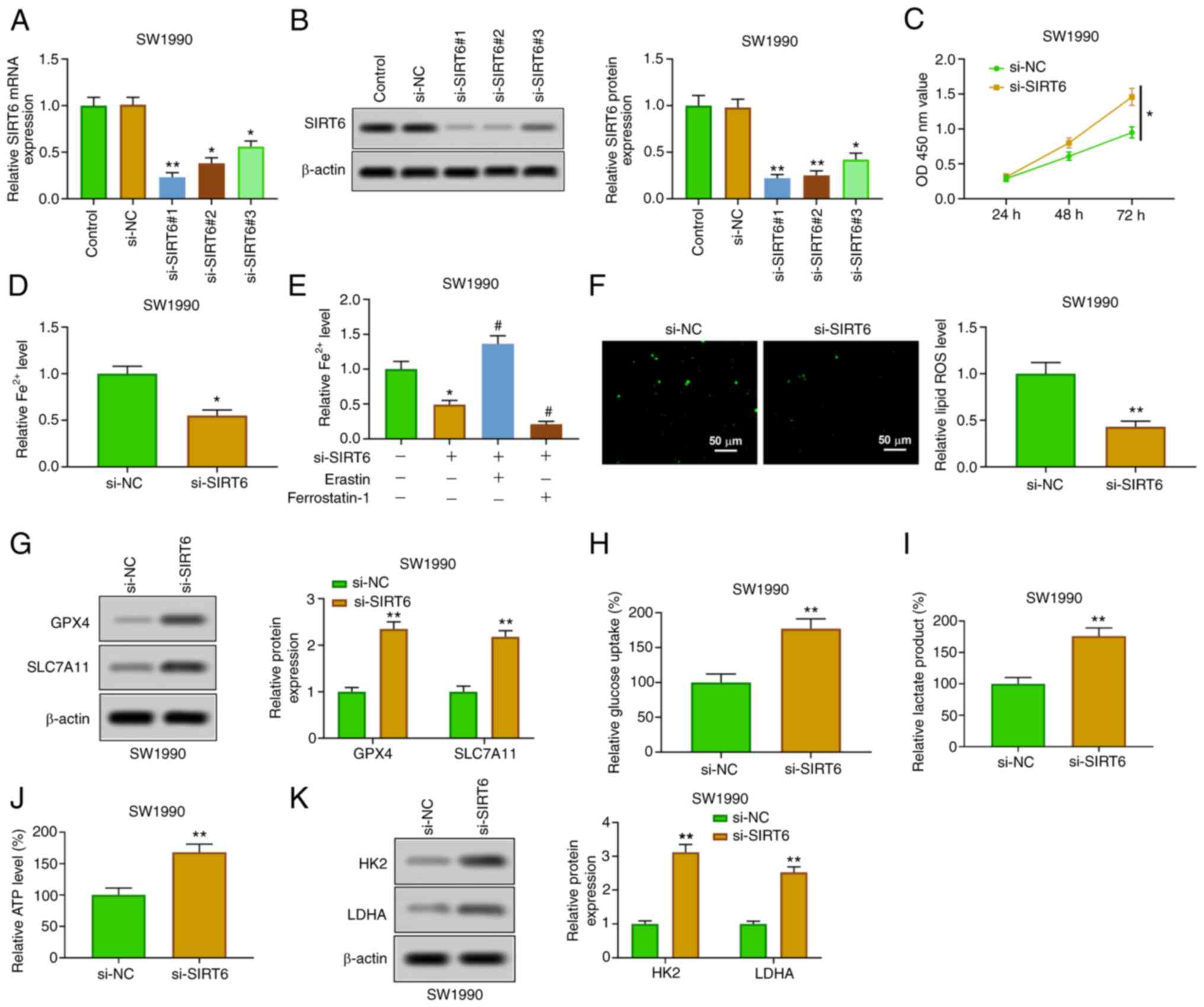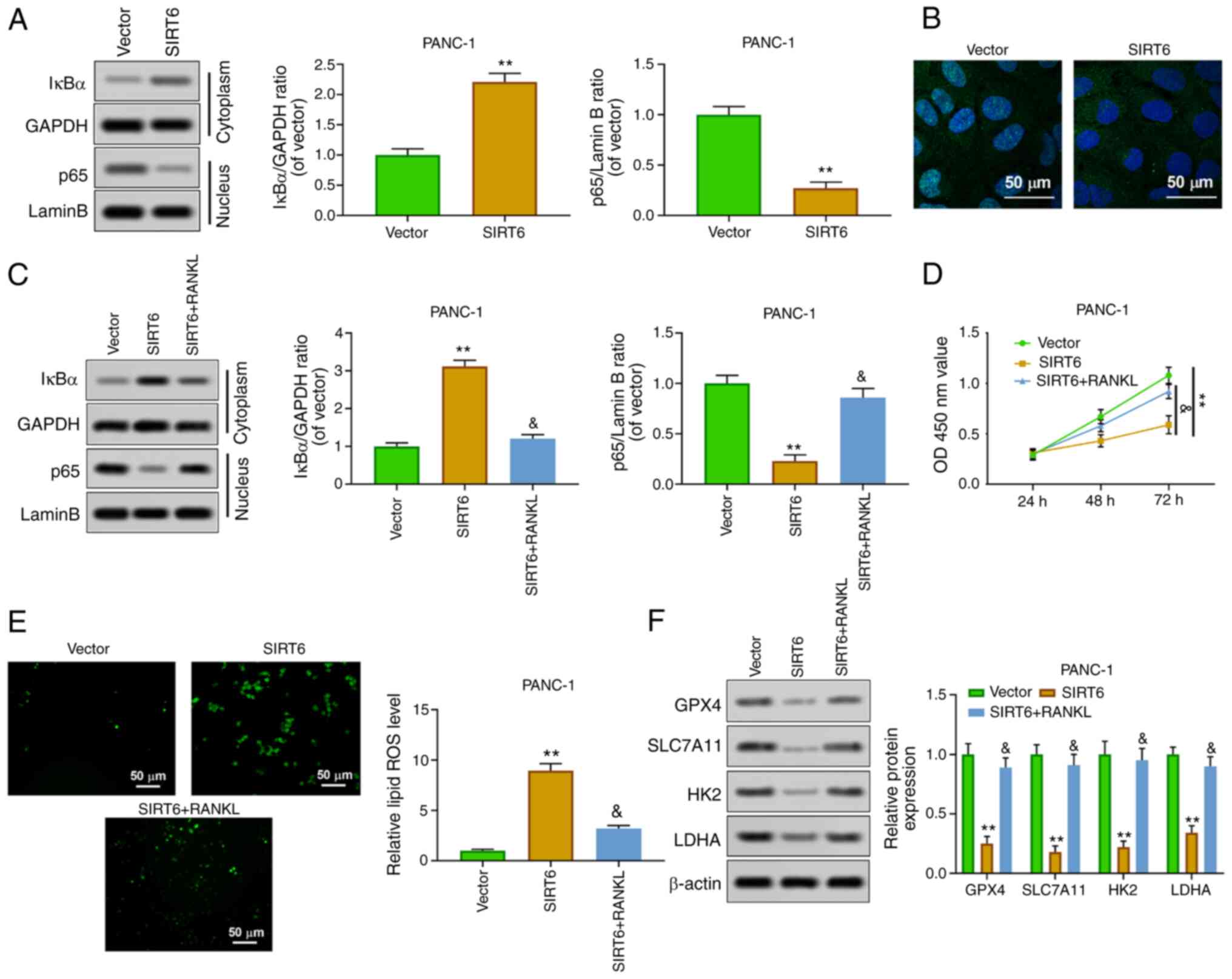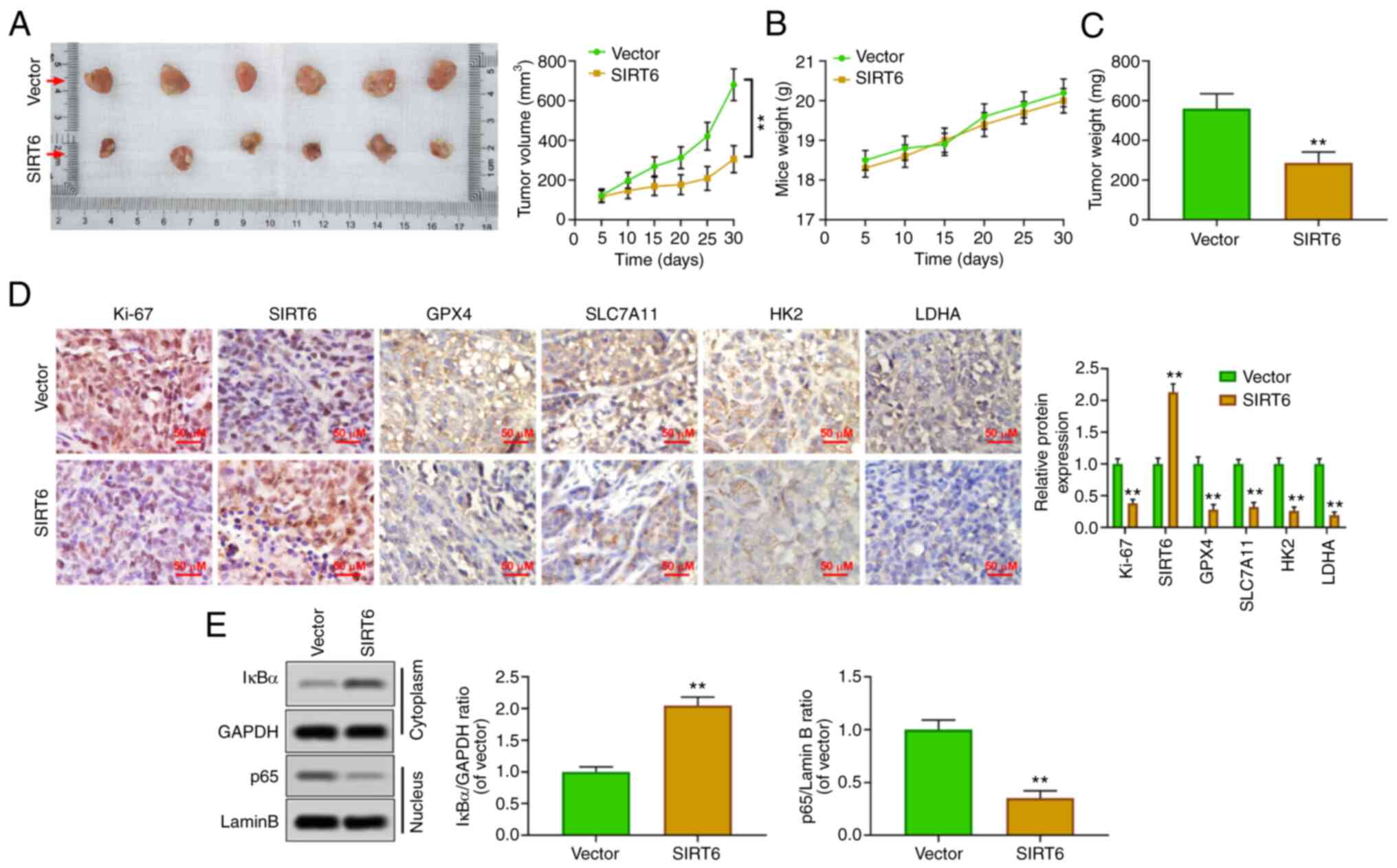|
1
|
Neoptolemos JP, Kleeff J, Michl P,
Costello E, Greenhalf W and Palmer DH: Therapeutic developments in
pancreatic cancer: Current and future perspectives. Nat Rev
Gastroenterol Hepatol. 15:333–348. 2018.PubMed/NCBI View Article : Google Scholar
|
|
2
|
Zhang L, Sanagapalli S and Stoita A:
Challenges in diagnosis of pancreatic cancer. World J
Gastroenterol. 24:2047–2060. 2018.PubMed/NCBI View Article : Google Scholar
|
|
3
|
Zeng S, Pöttler M, Lan B, Grützmann R,
Pilarsky C and Yang H: Chemoresistance in pancreatic cancer. Int J
Mol Sci. 20(4504)2019.PubMed/NCBI View Article : Google Scholar
|
|
4
|
Gupta R, Amanam I and Chung V: Current and
future therapies for advanced pancreatic cancer. J Surg Oncol.
116:25–34. 2017.PubMed/NCBI View Article : Google Scholar
|
|
5
|
Collisson EA, Bailey P, Chang DK and
Biankin AV: Molecular subtypes of pancreatic cancer. Nat Rev
Gastroenterol Hepatol. 16:207–220. 2019.PubMed/NCBI View Article : Google Scholar
|
|
6
|
Jentzsch V, Davis JAA and Djamgoz MBA:
Pancreatic Cancer (PDAC): Introduction of evidence-based
complementary measures into integrative clinical management.
Cancers (Basel). 12(3096)2020.PubMed/NCBI View Article : Google Scholar
|
|
7
|
Jonckheere N, Vasseur R and Van Seuningen
I: The cornerstone K-RAS mutation in pancreatic adenocarcinoma:
From cell signaling network, target genes, biological processes to
therapeutic targeting. Crit Rev Oncol Hematol. 111:7–19.
2017.PubMed/NCBI View Article : Google Scholar
|
|
8
|
Hirschhorn T and Stockwell BR: The
development of the concept of ferroptosis. Free Radic Biol Med.
133:130–143. 2019.PubMed/NCBI View Article : Google Scholar
|
|
9
|
Mou Y, Wang J, Wu J, He D, Zhang C, Duan C
and Li B: Ferroptosis, a new form of cell death: Opportunities and
challenges in cancer. J Hematol Oncol. 12(34)2019.PubMed/NCBI View Article : Google Scholar
|
|
10
|
Ye Z, Zhuo Q, Hu Q, Xu X, Mengqi Liu,
Zhang Z, Xu W, Liu W, Fan G, Qin Y, et al: FBW7-NRA41-SCD1 axis
synchronously regulates apoptosis and ferroptosis in pancreatic
cancer cells. Redox Biol. 38(101807)2021.PubMed/NCBI View Article : Google Scholar
|
|
11
|
Yang WH, Ding CC, Sun T, Rupprecht G, Lin
CC, Hsu D and Chi JT: The hippo pathway effector TAZ regulates
ferroptosis in renal cell carcinoma. Cell Rep. 28:2501–2508.e4.
2019.PubMed/NCBI View Article : Google Scholar
|
|
12
|
Sun X, Ou Z, Chen R, Niu X, Chen D, Kang R
and Tang D: Activation of the p62-Keap1-NRF2 pathway protects
against ferroptosis in hepatocellular carcinoma cells. Hepatology.
63:173–184. 2016.PubMed/NCBI View Article : Google Scholar
|
|
13
|
Jinesh GG, Sambandam V, Vijayaraghavan S,
Balaji K and Mukherjee S: Molecular genetics and cellular events of
K-Ras-driven tumorigenesis. Oncogene. 37:839–846. 2018.PubMed/NCBI View Article : Google Scholar
|
|
14
|
Rabi T and Catapano CV: Aphanin, a
triterpenoid from Amoora rohituka inhibits K-Ras mutant activity
and STAT3 in pancreatic carcinoma cells. Tumour Biol.
37:12455–12464. 2016.PubMed/NCBI View Article : Google Scholar
|
|
15
|
Xia X, Fan X, Zhao M and Zhu P: The
relationship between ferroptosis and tumors: A novel landscape for
therapeutic approach. Curr Gene Ther. 19:117–124. 2019.PubMed/NCBI View Article : Google Scholar
|
|
16
|
Zhu S, Zhang Q, Sun X, Zeh HJ III, Lotze
MT, Kang R and Tang D: HSPA5 regulates ferroptotic cell death in
cancer cells. Cancer Res. 77:2064–2077. 2017.PubMed/NCBI View Article : Google Scholar
|
|
17
|
Yang J, Xu J, Zhang B, Tan Z, Meng Q, Hua
J, Liu J, Wang W, Shi S, Yu X and Liang C: Ferroptosis: At the
crossroad of gemcitabine resistance and tumorigenesis in pancreatic
cancer. Int J Mol Sci. 22(10944)2021.PubMed/NCBI View Article : Google Scholar
|
|
18
|
Xu G, Wang H, Li X, Huang R and Luo L:
Recent progress on targeting ferroptosis for cancer therapy.
Biochem Pharmacol. 190(114584)2021.PubMed/NCBI View Article : Google Scholar
|
|
19
|
Yang J, Ren B, Yang G, Wang H, Chen G, You
L, Zhang T and Zhao Y: The enhancement of glycolysis regulates
pancreatic cancer metastasis. Cell Mol Life Sci. 77:305–321.
2020.PubMed/NCBI View Article : Google Scholar
|
|
20
|
Jiao L, Zhang HL, Li DD, Yang KL, Tang J,
Li X, Ji J, Yu Y, Wu RY, Ravichandran S, et al: Regulation of
glycolytic metabolism by autophagy in liver cancer involves
selective autophagic degradation of HK2 (hexokinase 2). Autophagy.
14:671–684. 2018.PubMed/NCBI View Article : Google Scholar
|
|
21
|
DeWaal D, Nogueira V, Terry AR, Patra KC,
Jeon SM, Guzman G, Au J, Long CP, Antoniewicz MR and Hay N:
Hexokinase-2 depletion inhibits glycolysis and induces oxidative
phosphorylation in hepatocellular carcinoma and sensitizes to
metformin. Nat Commun. 9(446)2018.PubMed/NCBI View Article : Google Scholar
|
|
22
|
Yang J, Ma S, Xu R, Wei Y, Zhang J, Zuo T,
Wang Z, Deng H, Yang N and Shen Q: Smart biomimetic metal organic
frameworks based on ROS-ferroptosis-glycolysis regulation for
enhanced tumor chemo-immunotherapy. J Control Release. 334:21–33.
2021.PubMed/NCBI View Article : Google Scholar
|
|
23
|
Singh CK, Chhabra G, Ndiaye MA,
Garcia-Peterson LM, Mack NJ and Ahmad N: The role of Sirtuins in
antioxidant and redox signaling. Antioxid Redox Signal. 28:643–661.
2018.PubMed/NCBI View Article : Google Scholar
|
|
24
|
Liu L, Li Y, Cao D, Qiu S, Li Y, Jiang C,
Bian R, Yang Y, Li L, Li X, et al: SIRT3 inhibits gallbladder
cancer by induction of AKT-dependent ferroptosis and blockade of
epithelial-mesenchymal transition. Cancer Lett. 510:93–104.
2021.PubMed/NCBI View Article : Google Scholar
|
|
25
|
Lee J, You JH, Kim MS and Roh JL:
Epigenetic reprogramming of epithelial-mesenchymal transition
promotes ferroptosis of head and neck cancer. Redox Biol.
37(101697)2020.PubMed/NCBI View Article : Google Scholar
|
|
26
|
Sebastián C, Zwaans BM, Silberman DM,
Gymrek M, Goren A, Zhong L, Ram O, Truelove J, Guimaraes AR, Toiber
D, et al: The histone deacetylase SIRT6 is a tumor suppressor that
controls cancer metabolism. Cell. 151:1185–1199. 2012.PubMed/NCBI View Article : Google Scholar
|
|
27
|
Tasselli L, Zheng W and Chua KF: SIRT6:
Novel mechanisms and links to aging and disease. Trends Endocrinol
Metab. 28:168–185. 2017.PubMed/NCBI View Article : Google Scholar
|
|
28
|
Liu G, Chen H, Liu H, Zhang W and Zhou J:
Emerging roles of SIRT6 in human diseases and its modulators. Med
Res Rev. 41:1089–1137. 2021.PubMed/NCBI View Article : Google Scholar
|
|
29
|
Kugel S, Sebastián C, Fitamant J, Ross KN,
Saha SK, Jain E, Gladden A, Arora KS, Kato Y, Rivera MN, et al:
SIRT6 suppresses pancreatic cancer through control of Lin28b. Cell.
165:1401–1415. 2016.PubMed/NCBI View Article : Google Scholar
|
|
30
|
Zwaans BM and Lombard DB: Interplay
between sirtuins, MYC and hypoxia-inducible factor in
cancer-associated metabolic reprogramming. Dis Models Mech.
7:1023–1032. 2014.PubMed/NCBI View Article : Google Scholar
|
|
31
|
Zhang C, Yu Y, Huang Q and Tang K: SIRT6
regulates the proliferation and apoptosis of hepatocellular
carcinoma via the ERK1/2 signaling pathway. Mol Med Rep.
20:1575–1582. 2019.PubMed/NCBI View Article : Google Scholar
|
|
32
|
Livak KJ and Schmittgen TD: Analysis of
relative gene expression data using real-time quantitative PCR and
the 2(-Delta Delta C(T)) method. Methods. 25:402–408.
2001.PubMed/NCBI View Article : Google Scholar
|
|
33
|
Goral V: Pancreatic cancer: Pathogenesis
and diagnosis. Asian Pac J Cancer Prev. 16:5619–5624.
2015.PubMed/NCBI View Article : Google Scholar
|
|
34
|
Grant TJ, Hua K and Singh A: Molecular
pathogenesis of pancreatic cancer. Prog Mol Biol Transl Sci.
144:241–275. 2016.PubMed/NCBI View Article : Google Scholar
|
|
35
|
Badgley MA, Kremer DM, Maurer HC,
DelGiorno KE, Lee HJ, Purohit V, Sagalovskiy IR, Ma A, Kapilian J,
Firl CEM, et al: Cysteine depletion induces pancreatic tumor
ferroptosis in mice. Science. 368:85–89. 2020.PubMed/NCBI View Article : Google Scholar
|
|
36
|
Cai M, Hu Z, Han L and Guo R:
MicroRNA-572/hMOF/Sirt6 regulates the progression of ovarian
cancer. Cell Cycle. 19:2509–2518. 2020.PubMed/NCBI View Article : Google Scholar
|
|
37
|
Liu W, Wu M, Du H, Shi X, Zhang T and Li
J: SIRT6 inhibits colorectal cancer stem cell proliferation by
targeting CDC25A. Oncol Lett. 15:5368–5374. 2018.PubMed/NCBI View Article : Google Scholar
|
|
38
|
Park JJ, Hah YS, Ryu S, Cheon SY, Won SJ,
Lee JS, Hwa JS, Seo JH, Chang HW, Kim SW and Kim SY: MDM2-dependent
Sirt1 degradation is a prerequisite for Sirt6-mediated cell death
in head and neck cancers. Exp Mol Med. 53:422–431. 2021.PubMed/NCBI View Article : Google Scholar
|
|
39
|
Chen X, Li D, Gao Y, Cao Y and Hao B:
Histone deacetylase SIRT6 inhibits glioma cell growth through
down-regulating NOTCH3 expression. Acta Biochim Biophys Sin
(Shanghai). 50:417–424. 2018.PubMed/NCBI View Article : Google Scholar
|
|
40
|
Cai S, Fu S, Zhang W, Yuan X, Cheng Y and
Fang J: SIRT6 silencing overcomes resistance to sorafenib by
promoting ferroptosis in gastric cancer. Biochem Biophys Res
Commun. 577:158–164. 2021.PubMed/NCBI View Article : Google Scholar
|
|
41
|
Jiang Y, He R, Jiang Y, Liu D, Tao L, Yang
M, Lin C, Shen Y, Fu X, Yang J, et al: Transcription factor NFAT5
contributes to the glycolytic phenotype rewiring and pancreatic
cancer progression via transcription of PGK1. Cell Death Dis.
10(948)2019.PubMed/NCBI View Article : Google Scholar
|
|
42
|
Zhong L, D'Urso A, Toiber D, Sebastian C,
Henry RE, Vadysirisack DD, Guimaraes A, Marinelli B, Wikstrom JD,
Nir T, et al: The histone deacetylase Sirt6 regulates glucose
homeostasis via Hif1alpha. Cell. 140:280–293. 2010.PubMed/NCBI View Article : Google Scholar
|
|
43
|
Fang C, Liu Y, Chen L, Luo Y, Cui Y, Zhang
N, Liu P, Zhou M and Xie Y: α-Hederin inhibits the growth of lung
cancer A549 cells in vitro and in vivo by decreasing SIRT6
dependent glycolysis. Pharm Biol. 59:11–20. 2021.PubMed/NCBI View Article : Google Scholar
|
|
44
|
Dong Z, Yang J, Li L, Tan L, Shi P, Zhang
J, Zhong X, Ge L, Wu Z and Cui H: FOXO3a-SIRT6 axis suppresses
aerobic glycolysis in melanoma. Int J Oncol. 56:728–742.
2020.PubMed/NCBI View Article : Google Scholar
|
|
45
|
Santos-Barriopedro I, Bosch-Presegué L,
Marazuela-Duque A, de la Torre C, Colomer C, Vazquez BN, Fuhrmann
T, Martínez-Pastor B, Lu W, Braun T, et al: SIRT6-dependent
cysteine monoubiquitination in the PRE-SET domain of Suv39h1
regulates the NF-κB pathway. Nat Commun. 9(101)2018.PubMed/NCBI View Article : Google Scholar
|
|
46
|
Moretti M, Bennett J, Tornatore L,
Thotakura AK and Franzoso G: Cancer: NF-κB regulates energy
metabolism. Int J Biochem Cell Biol. 44:2238–2243. 2012.PubMed/NCBI View Article : Google Scholar
|
|
47
|
Gao J, Luo T and Wang J: Gene
interfered-ferroptosis therapy for cancers. Nat Commun.
12(5311)2021.PubMed/NCBI View Article : Google Scholar
|
|
48
|
Cuesta E, Boada J, Perales JC, Roig T and
Bermudez J: Aspirin inhibits NF-kappaB activation in a
glycolysis-depleted lung epithelial cell line. Eur J Pharmacol.
517:158–164. 2005.PubMed/NCBI View Article : Google Scholar
|
|
49
|
Zhao M, Fan J, Liu Y, Yu Y, Xu J, Wen Q,
Zhang J, Fu S, Wang B, Xiang L, et al: Oncogenic role of the
TP53-induced glycolysis and apoptosis regulator in nasopharyngeal
carcinoma through NF-κB pathway modulation. Int J Oncol.
48:756–764. 2016.PubMed/NCBI View Article : Google Scholar
|
|
50
|
Kawauchi K, Araki K, Tobiume K and Tanaka
N: p53 regulates glucose metabolism through an IKK-NF-κB pathway
and inhibits cell transformation. Nat Cell Biol. 10:611–618.
2008.PubMed/NCBI View Article : Google Scholar
|















